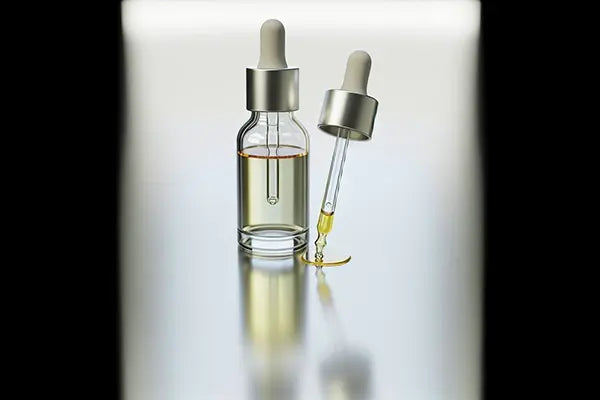

Searching for information on CBG for depression? Dive into our exploration of how CBG, a unique cannabinoid, may offer new avenues for mood improvement and emotional balance. Our guide demystifies CBG’s potential interactions within the body and its relevance for mental health, without overpromising or speculation.

CBG is derived from early-stage cannabis plants, often from the hemp strain, and is non-intoxicating. Historically, it has been used medicinally for managing conditions like pain and insomnia. The potential health benefits of CBG, which may surpass those of cbd and cbg, as well as other cannabinoids, have become an exciting field to explore as research progresses.
While CBG has not been studied as extensively as other cannabinoids, anecdotal evidence and initial scientific research suggest it may hold promise for a spectrum of conditions. This encompasses depression, a condition that affects both mental and physical health. Increasingly, people are turning to cannabis preparations with high CBG content to alleviate anxiety, discovering that CBG often provides more effective relief from anxiety and depression than conventional medications.

The potential therapeutic effects of CBG are thought to be derived from its interaction with the endocannabinoid system, a complex network in our bodies responsible for maintaining health and wellness. The system consists of cannabinoid receptors, with which CBG interacts, and the naturally occurring endocannabinoid, anandamide, which has significant implications for our mental health.
Our bodies house two types of cannabinoid receptors, CB1 and CB2, both playing pivotal roles in a host of physiological processes. CB1 receptors, densely populated within the brain, are integral for mood regulation, memory, and pain perception – all crucial components of the nervous system. On the other hand, CB2 receptors are primarily found in the immune system, where they are involved in immune function and inflammation.
Cannabinoids like CBG interact with these receptors, acting as an agonist for both CB1 and CB2. Their interaction stimulates cannabis cannabinoid res effects such as:
These effects are mediated by CB1 receptors. Simultaneously, CB2 receptors, found in the immune system, are implicated in the processing of inflammatory pain.
Anandamide, often referred to as the ‘bliss molecule,’ is a naturally occurring endocannabinoid that binds specifically to CB1 receptors. This interaction greatly influences mood regulation and is associated with conditions like post-traumatic stress disorder.
CBG has a unique interaction with anandamide, functioning as an inhibitor. This leads to an increase in anandamide levels when CBG is present, potentially aiding in the management of chronic pain and fostering a sense of well-being.

In addition to its interaction with the endocannabinoid system, the potential benefits of depressions might also arise from its influence on neurotransmitters and its anti-inflammatory properties. These mechanisms may enhance mood regulation and reduce inflammation, a known contributor to depressive symptoms.
The interaction of CBG with neurotransmitters such as serotonin and dopamine significantly impacts mood regulation. It can modulate the release of these neurotransmitters, inhibit serotonin uptake, and has been observed to elevate serotonin and GABA levels in the brain. This modulation can potentially contribute to the alleviation of depression symptoms.
Furthermore, by increasing anandamide levels, CBG can promote a sense of well-being and assist with muscle relaxation during anxiety episodes. This can potentially improve mood and promote relaxation, providing an additional layer of therapeutic potential for those battling depression.
Inflammation is associated with a range of mental health conditions, including depression. The anti-inflammatory properties of CBG could potentially mitigate inflammation related to depressive symptoms, thereby possibly offering relief to those struggling with this condition.
Depression has been correlated with persistent low-grade inflammatory responses. Elevated levels of pro-inflammatory cytokines in individuals with depression indicate that inflammation likely contributes to depressive symptoms. CBG, with its anti-inflammatory properties, may potentially address this issue, offering a new avenue for depression treatment.

Despite being less well-known than its counterparts, CBG plays a crucial role within the cannabis plant as the precursor from which all other cannabinoids stem. This earned it the title of the ‘mother of all cannabinoids.’ All cannabinoids originate from the acidic form of CBG, known as cannabigerolic acid (CBGA).
While CBG shares similarities with other acidic cannabinoid, its unique interactions with the endocannabinoid system set it apart. Compared to CBD and CBDa, which inhibit the cellular reuptake of anandamide, CBG exhibits a slight affinity for CB1 receptors, similar to CBD. This distinct interaction is believed to contribute to the therapeutic effects of CBG.

As interest in CBG grows, so does its availability. However, due to the higher cost and limited availability, CBG products are still considered specialty items. They can be found online and in select local retailers, with options ranging from oils to gummies and combination products.
Choosing the right CBG product involves several considerations. The purity of a CBG product is pivotal in ensuring desired amounts of CBG and eliminating impurities, crucial for maintaining effectiveness. Higher concentrations of CBG may provide greater potency, potentially offering advantages for depression treatment.
Moreover, the presence of certain terpenes and other cannabinoids in a CBG product can modulate its effectiveness. Each cannabis strain has a unique profile of these compounds, which can significantly influence the overall effects and potentially the therapeutic outcomes for depression.
The consumption method can influence the absorption of CBG in the body, with some methods yielding higher absorption rates than others.
Broad-spectrum CBD(Cannabidiol) oils, for instance, enable the comprehensive intake of multiple cannabinoids and terpenes while excluding THC. This provides a means to consume CBG and other beneficial compounds simultaneously, potentially enhancing the therapeutic outcomes of depression.
Personal stories from CBG predominant cannabis users shed light on its potential benefits. Some of the reported benefits of CBG include:
Many individuals find that CBG appears, alongside CBD, to offer anxiety-reducing properties, making it a popular choice for those seeking alternative treatments to conventional medicines.
Many users have found that CBG helps manage their generalized anxiety effectively. The process of managing anxiety necessitates strength, awareness, and understanding. Personal experiences suggest that CBG may play a significant role in making this process more manageable.
It’s important to note that while these personal experiences provide promising insights into the potential of depression and anxiety, they are subjective and should be supplemented by rigorous scientific research for a well-rounded understanding of CBG’s therapeutic potential. These self reported therapeutic effect, though valuable, must be considered with caution.
Although CBG holds promise for mental health applications, it’s important, as with any treatment, to consider its safety and potential side effects. Some reported side effects of CBG include:
However, these sleep disorders are generally minimal and rare, even at high doses.
Pre-clinical findings suggest that CBG is likely safe for most healthy individuals, demonstrating potential therapeutic benefits such as antioxidant, anti-inflammatory, and anti-tumoral activities without dangerous side effects. However, more research is needed to definitively establish CBG’s safety profile.
Even though CBG is generally considered safe, current research on its potential side effects and the risk of drug interactions is insufficient to provide conclusive insights. Comprehensive studies are essential to gain a complete understanding of these risks and to ensure the safe and effective use of CBG.
The legal status and accessibility of CBG product vary depending on local regulations. Here are some examples:
Regardless of the legal complexities, the accessibility of CBG product for consumers is increasing. They can be purchased from online platforms and select local retailers, but it’s crucial to purchase from trustworthy sources to ensure the safety and efficacy of the products.
Even though the potential therapeutic benefits of depression are encouraging, research in this area is still emerging. There are potential risks of bias in study design and execution, and establishing definitive causal relationships remains a challenge. Therefore, further research is crucial to fully understand CBG’s therapeutic potential for depression.
Current research efforts are focusing on the potential advantages of CBG in addressing depression, and initial findings indicate promising results. Future research is expected to investigate the activation of PPARγ and PPARα receptors in dermal cells by CBG, with particular attention to its potential therapeutic applications in treating neurologic disorders, including its possible role in managing depression.
As we delve deeper into the world of cannabinoids, CBG emerges as a promising candidate for the treatment of depression. Its unique interactions with the endocannabinoid system, impact on neurotransmitters, and anti-inflammatory properties suggest potential therapeutic benefits. Personal experiences and initial research findings reinforce this potential, but more comprehensive research is necessary to fully understand CBG’s therapeutic potential, safety, and most effective methods of consumption and dosing. As our understanding of CBG expands, so too does the hope for a new, effective treatment option for those living with depressive disorders.
Yes, CBG is showing promise in managing anxiety and depression, with a significant number of people finding it effective for promoting better mental health. It is the most common condition reported for using CBG to treat.
CBG makes you feel good by binding with endocannabinoid system receptors that alleviate anxiety and help calm your nerves, making you feel better. Consider taking 2 - 5 mg a few times a day to experience the benefits.
Yes, CBG may increase dopamine levels, supporting sleep and appetite regulation.
CBG acts as a buffer to THC's psychoactivity, alleviating paranoia caused by higher THC levels. It also fights inflammation, pain, nausea, and slows the proliferation of cancer cells.
Yes, a small-scale study found that many people reported using CBG to reduce anxiety and depression, and most of them felt it was more effective than conventional medicines. Another study reported that over half of the respondents used CBG to treat anxiety, with the majority experiencing significant improvement in their condition.


Dr. Babak Larian, Clinical Chief at Cedars-Sinai Medical Center, is a renowned expert in minimally invasive head and neck surgery. Board-certified and active in global medical missions, he also oversees surgical operations at the La Peer Surgery Center and PathMD pathology laboratories.

Dr. Kia Michel, a globally acclaimed Urological Oncological Surgeon, founded the Comprehensive Urology Medical Group in Los Angeles, known for his expertise in robotic and minimally invasive therapies. Alongside his medical achievements, he contributes to businesses like La Peer Surgery Center, finding joy in nature and bringing smiles to loved ones.

Dr. Jamshidinia, a certified Foot and Ankle Surgeon and Fellow of the American College of Foot and Ankle Surgeons, founded Tower Foot & Ankle Surgery and co-founded successful enterprises, including La Peer Health Systems. His involvement in medical research and the cannabinoid medicine market, highlights his multifaceted contributions to the field.

Dr. Siamak Tabib, a Board-Certified Gastroenterologist in Beverly Hills, holds a medical degree from UCLA Geffen School of Medicine and serves as Assistant Clinical Professor at UCLA.
He actively contributes to research in digestive diseases, co- founding healthcare entities and advocating for adaptive sports opportunities through his advisory role at Angel City Sports.

Find Your Solution